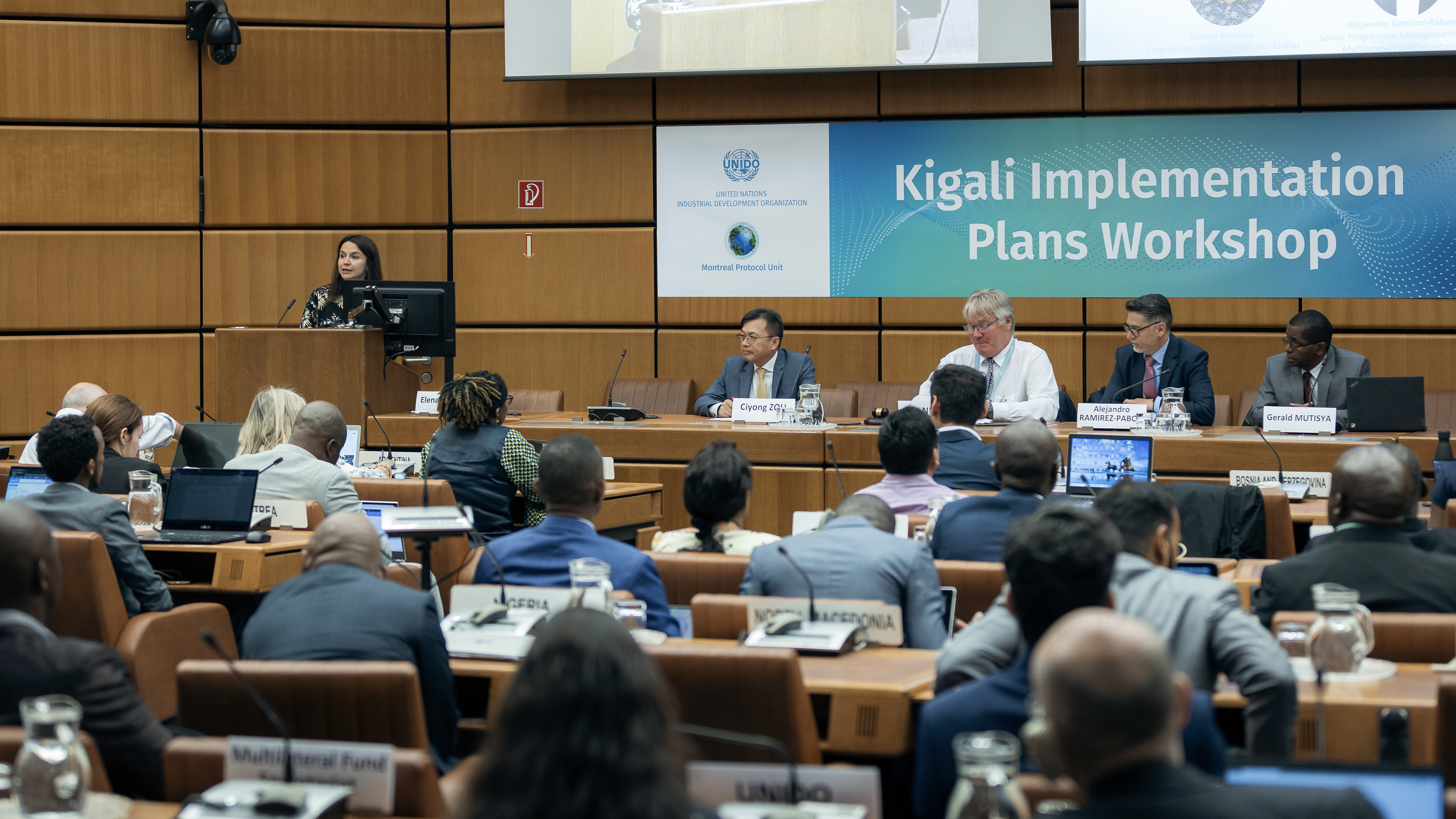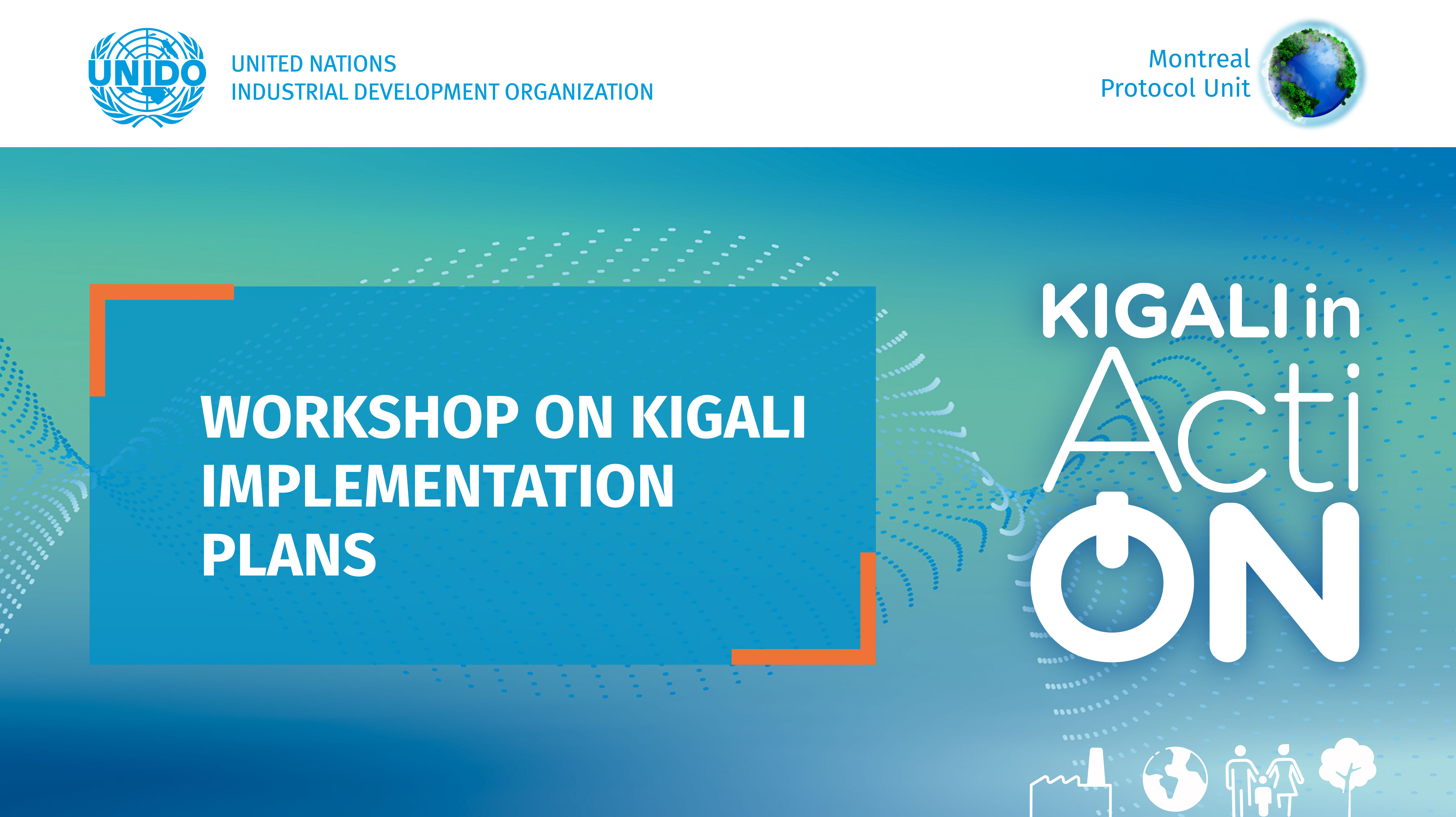

14 Jun 2023, 09:00
16 Jun 2023, 17:30
Conference Room 3, Vienna International Centre
UNIDO

“International agreements like the Montreal Protocol prove that cooperation and joint actions lead to successful outcomes and together we can achieve so much, but we need to act now,” said Gerd Muller, UNIDO’s Director General.
Addressing the National Ozone Officers (NOOs) and other participants of the Kigali Implementation Plans (KIP) workshop held in Vienna, the DG in his video message called upon the delegates to implement climate friendly policies and technologies in their countries.
The three-day workshop, organized by UNIDO’s Montreal Protocol Division, was attended by NOOs, specialists and resource persons from 55 countries. Ciyong Zou, Deputy to the Director General and Managing Director, Directorate of Technical Cooperation and Sustainable Industrial Development, congratulated Cameroon for getting the KIP approved and Niger for their early initiatives towards KIPs from the Multilateral Fund (MLF).
Speaking at the opening ceremony. Ciyong reminded that since 2010, UNIDO supported over 92 countries through the Montreal Protocol MLF projects. It achieved a billion-dollar milestone this year, as the cumulative funding received from the MLF for UNIDO projects crossed $1 billion so far. “The approval of the Kigali Implementation Plans for Niger and Cameroon, submitted to the MLF by UNIDO has demonstrated the dedication and technical expertise of UNIDO team and I congratulate them for their pioneering work,” he said.
“There were 12 technical sessions moderated by various project managers, covering a wide range of themes related to the preparation of the KIPs. Specialists from various partner agencies like the MLF Secretariat, Ozone Secretariat, European Commission, European Environment Agency, industry experts and academics,” said Ole Nielsen, Chief of Montreal Protocol Division. Each session comprised of a panel of specialists who led the participants into the latest in various fields. The sessions included ‘Design Thinking’ workshop conducted by UNIDO’s Innovation Lab, which gave a hands on experience to the delegates on incorporating energy efficiency aspects in the preparation of their KIPS.
The final session involved a field visit to the Austrian Refrigeration Academy in Modling, a city outside Vienna where the delegates were exposed to practical demonstration of different type of refrigerants. “It was a rich learning experience and we have heard from the specialists on preparing KIPs for our countries which is very helpful,” said a National Ozone Officer.
Under the Kigali Amendment to the Montreal Protocol, which is ratified by over 150 countries so far, member states pledged to gradually reduce the consumption and production of hydrofluorocarbons (HFCs), which are powerful greenhouse gases. HFCs are used in many industries, especially in refrigeration and air conditioning sector.
Please see the agenda here
Please see the logistical note here
Please see speaker's biographies here
Please see slides here: session1 session2 session3 session4 session5 session6 session7 session8 session9 session10 session11





